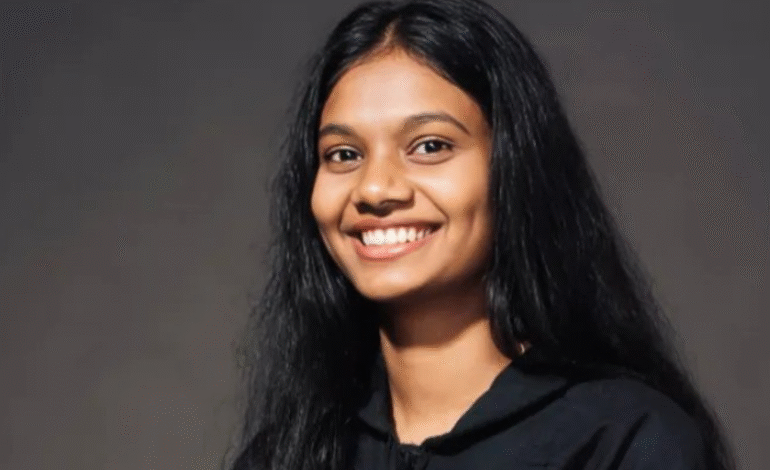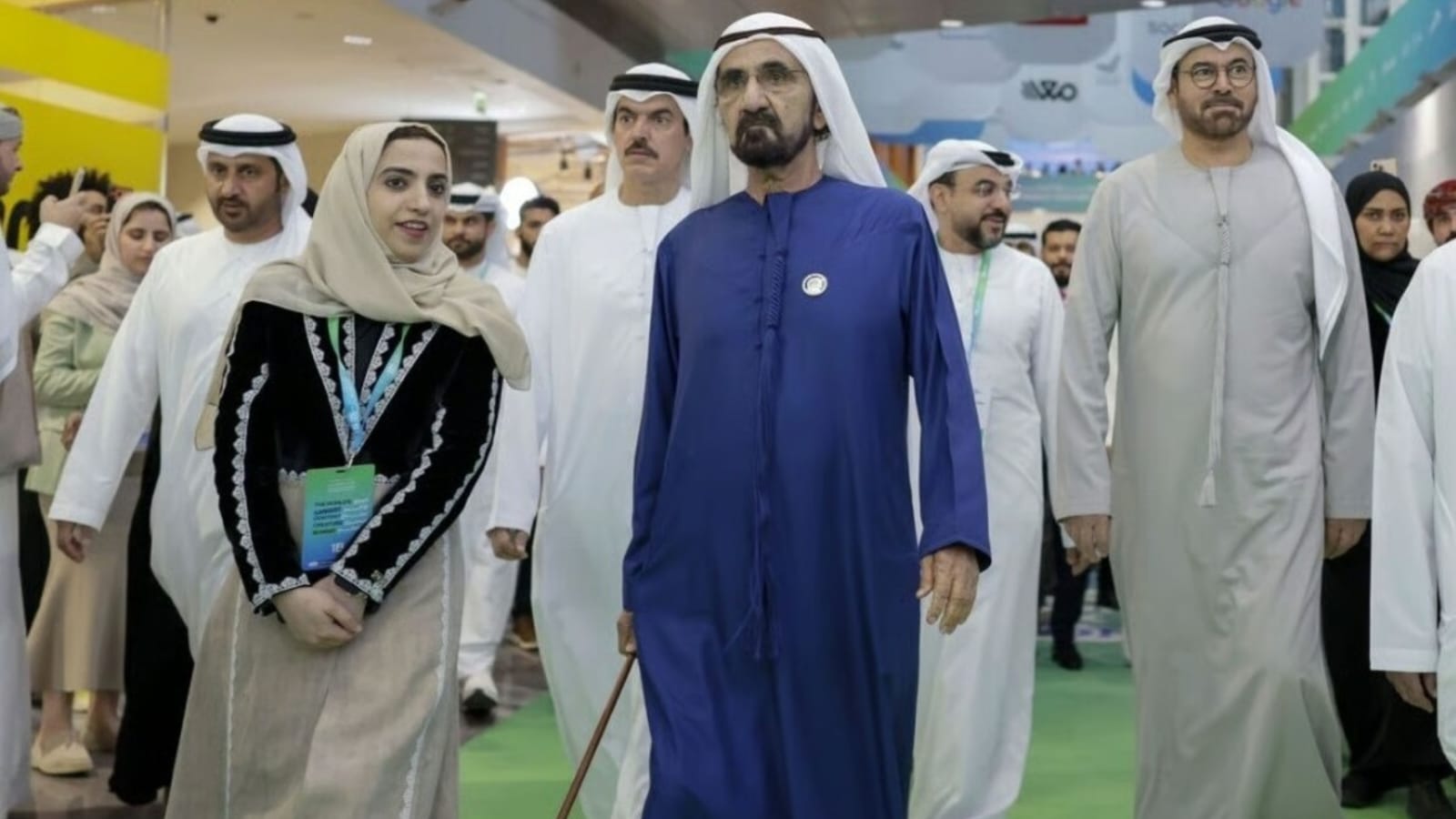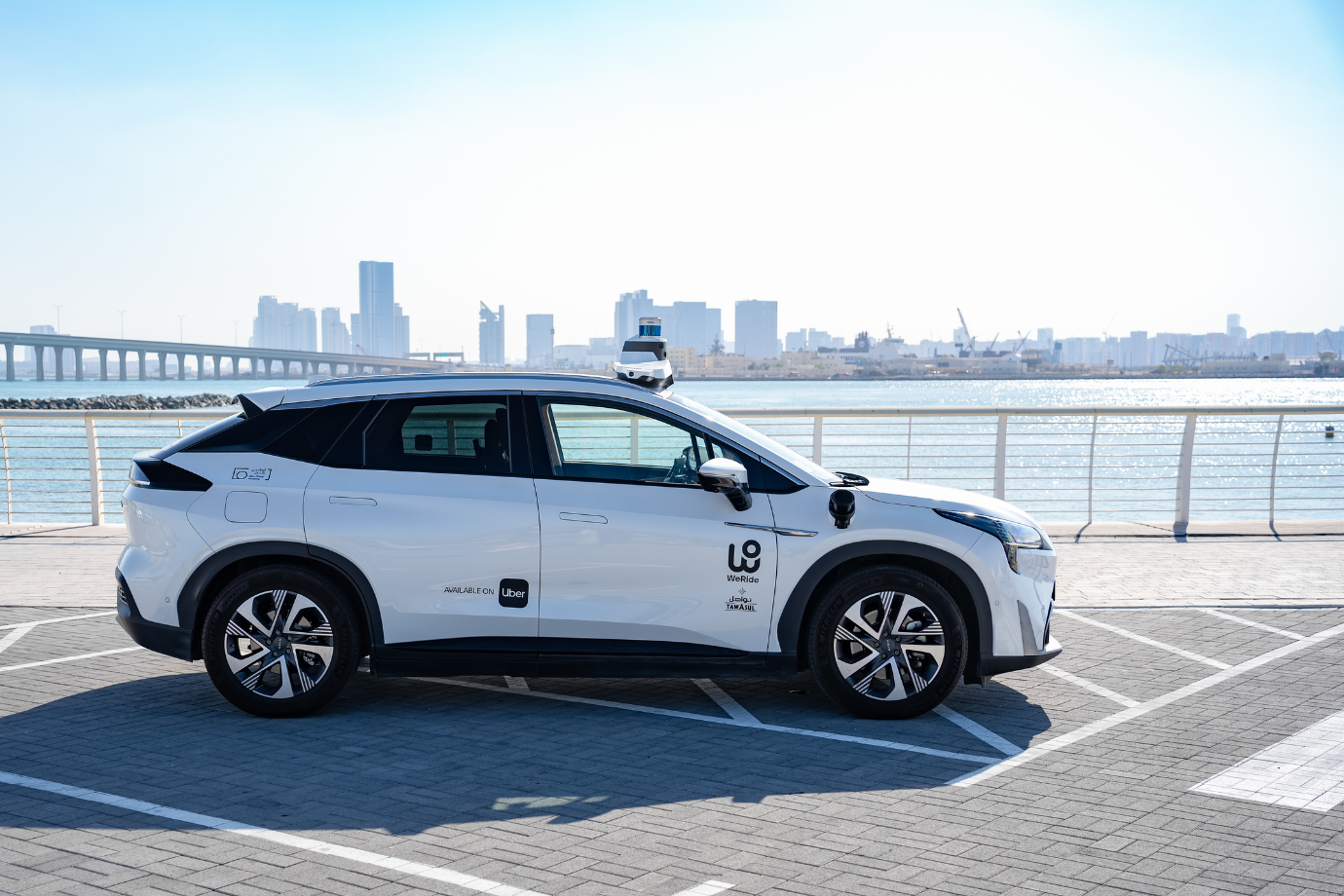Jahnavi Dangeti Joins Titan’s 2029 Private Orbital Spaceflight

In a major milestone for global private spaceflight, 23-year-old Jahnavi Dangeti from Palakollu, a town in Andhra Pradesh’s West Godavari district in India, has been officially selected as an Astronaut Candidate (ASCAN) for the upcoming 2029 orbital mission by Titan Space Industries. This U.S.-based private space research and development company is developing advanced infrastructure for human space exploration. Jahnavi’s inclusion in the mission represents a major achievement not only for her but also for the new wave of international space professionals being drawn into private aerospace programs.
The spaceflight will be commanded by Colonel William McArthur Jr., a retired NASA astronaut with extensive experience in space missions. The 2029 mission, which will orbit the Earth twice during its five-hour duration, is designed to test human endurance in zero gravity while supporting critical research in orbital environments. During the flight, astronauts will experience around three hours of continuous weightlessness, a rare opportunity aimed at gathering data to shape future missions, including off-Earth habitats.
Jahnavi’s selection is a testament to her strong foundation in aerospace training, international collaborations, and space research—all of which align perfectly with Titan’s goals of pushing humanity toward sustainable space exploration.
Strong Academic Foundation in Engineering and Space Studies
Jahnavi Dangeti’s journey into the world of space exploration began with her engineering studies. She pursued a degree in Electronics and Communication Engineering from Lovely Professional University (LPU) in Punjab, India. During her undergraduate studies, she distinguished herself through her academic performance and her involvement in space-related activities and research.
What set her apart at a young age was her ability to leverage her technical skills into practical exposure in the field of aerospace. She became the first Indian to complete the NASA-led International Air and Space Program (IASP), where she trained alongside a diverse group of global participants. This program focuses on preparing young engineers and scientists through hands-on activities like mission simulations, microgravity experiments, and rocket-building challenges.
Jahnavi’s early exposure to such intensive programs helped her develop a multidisciplinary understanding of what it takes to survive and succeed in space. Her NASA IASP training included sessions on space physiology, systems engineering, rocket propulsion, and leadership under stress—elements that are essential in astronaut training.
Trailblazing Role as an Analog Astronaut and Space Researcher
Jahnavi’s pursuit of excellence in space research didn’t stop with one program. She went on to become the youngest foreign Analog Astronaut at the Analog Astronaut Training Centre in Poland, an institution recognized for its realistic simulations of extraterrestrial environments. Analog astronaut missions are vital in preparing future astronauts for long-duration missions to the Moon and Mars, as they allow researchers to evaluate physical, psychological, and technical challenges faced in isolation.
Through these experiences, Jahnavi trained in life-support system simulations, emergency protocols, communication delay management, and space habitat sustainability. She also underwent physical endurance training in confined settings—skills that will be directly applicable when she begins astronaut training for Titan’s mission in 2026.
In addition to her field training, Jahnavi contributed to scientific discovery by participating in asteroid identification projects. As part of the International Astronomical Search Collaboration (IASC), she helped discover near-Earth asteroids, contributing data that informs planetary defense and celestial navigation planning. This form of citizen science, in collaboration with institutions like NASA and Pan-STARRS, underscores her engagement with real-world research beyond classroom learning.
Titan Orbital Port Mission and the Future of Private Spaceflight
Titan Space Industries’ 2029 mission is linked to the broader development of the Titan Orbital Port, an ambitious infrastructure project in low-Earth orbit. The port is envisioned as a modular space station that can support various scientific, logistical, and habitation activities. The company aims to reduce the cost of space access and promote commercial human presence in orbit.
Jahnavi’s mission will be one of the first to interface directly with this infrastructure. While the 2029 flight will not dock at the station itself, it will test the systems and procedures that will one day make this orbital outpost a hub for future missions to the Moon, Mars, or deep space. The flight’s design includes two full Earth orbits, offering a stunning view of two sunrises and two sunsets from space—a scientifically meaningful and emotionally powerful experience for all astronauts involved.
According to Titan Space Industries, the 2029 mission will collect biomedical, psychological, and systems performance data to inform their next phase of expansion. By participating, Jahnavi will play a part in testing not only new technologies but also the human body’s response to microgravity, orbital dynamics, and short-term space isolation.
Rigorous Astronaut Training Scheduled to Begin in 2026
Jahnavi’s official astronaut training begins in 2026 and will span over three years. The training will follow industry-standard protocols, incorporating spacecraft systems operations, human survival techniques, orbital simulations, neutral buoyancy training, and medical evaluations. These are not merely symbolic or ceremonial procedures—they are high-stakes preparations to ensure astronaut safety, mission reliability, and team coordination under stress.
Neutral buoyancy training involves underwater exercises that simulate the weightlessness of space. Survival training includes preparing for emergency landings in water, deserts, or extreme environments. Simulators will help candidates understand flight dynamics, communications systems, and mission control protocols.
Medical screening is also crucial, involving cardiovascular endurance, balance and coordination tests, immune system monitoring, and long-duration psychological assessments. Candidates are evaluated for their ability to stay focused, maintain teamwork, and make decisions under pressure.
Jahnavi’s prior experience, including zero-gravity flights and analog missions, gives her a significant head start. However, the upcoming training will solidify her readiness to take part in Titan’s vision of orbital habitation and private space access.
A Global Perspective and Humble Beginnings
Born and raised in Palakollu, Jahnavi comes from a modest background. Her parents, Padmasri and Srinivas, currently reside in Kuwait, and have supported her dreams every step of the way. Her journey—from a small town in Andhra Pradesh to being selected for an international space mission—resonates with many aspiring young minds.
Jahnavi represents not just scientific achievement, but also the bridging of global educational systems and research communities. Her story reflects how today’s space exploration is no longer limited by borders. It is increasingly being shaped by cooperative, cross-cultural, and commercially driven partnerships that invite talented individuals from all over the world.
She has often spoken about her motivations and ambitions in public forums. In one of her recent statements shared on social media, she said:
“This mission is for all of us who look up and imagine the impossible.”
This quote captures the essence of space exploration—an inclusive pursuit, driven by curiosity and collective dreams.
Awards, Recognition, and Leadership in STEM Outreach
Jahnavi’s impact extends beyond space science. She has actively engaged in STEM outreach, giving talks at ISRO, NITs, and youth innovation forums. Her ability to connect with audiences, especially students and aspiring scientists, has made her a popular figure in India’s educational circles.
She has received numerous awards, including the People’s Choice Award at NASA’s Space Apps Challenge, a competition that draws thousands of participants from around the globe to develop innovative solutions using NASA’s open data. Additionally, she was honored with the Young Achiever Award at ISRO’s World Space Week—a celebration of global achievements in space exploration.
Her consistent presence in public events, online educational campaigns, and media coverage has helped demystify space careers for the younger generation, especially for girls and underrepresented communities in STEM.
A Symbol of the Future: Inclusive and Global Space Access
Jahnavi Dangeti’s journey stands as a powerful example of the democratization of space. She is not representing any government body, but rather a new generation of space professionals who are entering through the doors opened by private aerospace companies. Her involvement in Titan’s 2029 mission signals a future where space is not just about geopolitics or national prestige, but about collaborative, science-driven, and commercially sustainable ventures.
The Titan Space Industries mission is part of a global movement that includes companies like SpaceX, Blue Origin, and Axiom Space, all working toward similar goals—making space more accessible, reducing mission costs, and creating permanent infrastructure beyond Earth. The success of these missions may one day enable ordinary citizens to live, work, and research in space environments.
A Mission That Inspires Beyond Borders
Jahnavi Dangeti’s upcoming journey to space is more than a personal accomplishment—it is a symbol of what the future of space exploration could look like. It combines innovation, youth, education, diversity, and global cooperation into one powerful narrative.
As she prepares for training, and eventually flight, the world will watch her progress not just as a technical feat, but as an inspiration. Her participation marks a shift from space being the realm of elite astronauts from a few nations to a more inclusive, commercially supported, and scientifically driven endeavor.
With young minds like Jahnavi leading the way, humanity’s journey beyond Earth is no longer a distant dream—it is a tangible and inclusive future that belongs to all.







